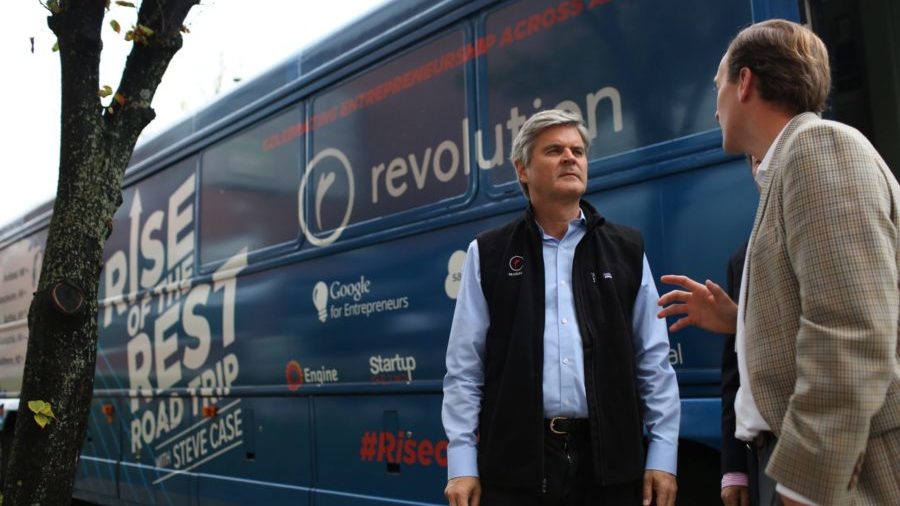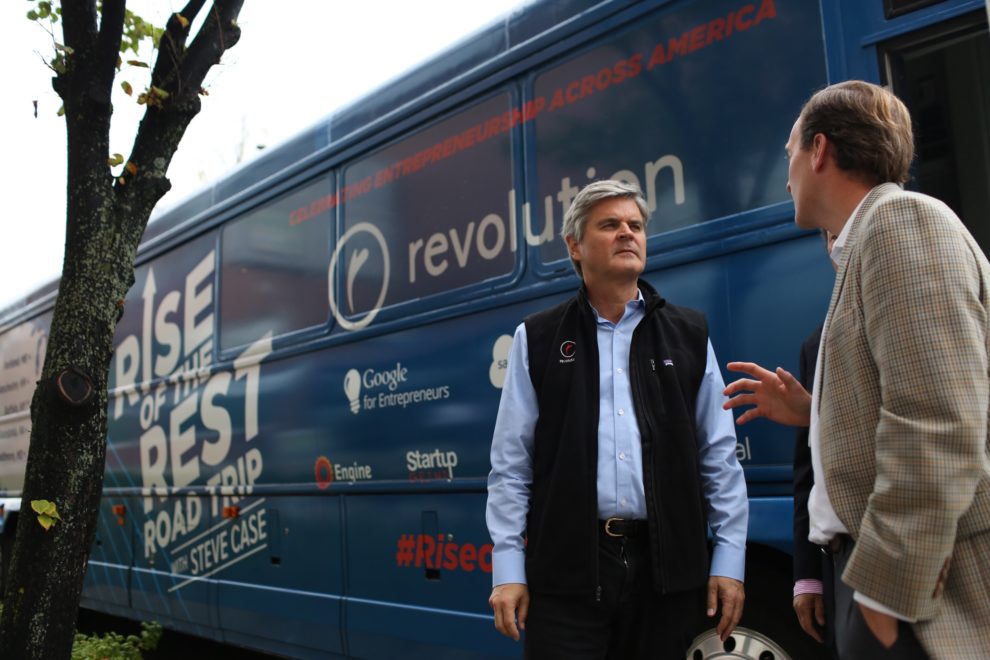Editor’s note: This article is part of Something Ventured, an ongoing series by Crunchbase News examining diversity and access to capital in the venture-backed startup ecosystem. Read more about how venture dollars are spreading around the U.S. here and access the full project here.
Steve Case openly admits he did not know of all the opportunities that existed when six years ago he launched Revolution’s Rise of the Rest, which focuses on investing in underserved and secondary markets in the country.
“I sensed it,” he recalls, “but I didn’t know it.”
Subscribe to the Crunchbase Daily
Since 2014, Rise of the Rest seed funds have been focused on investing outside of the big venture capital markets — Silicon Valley, New York and Boston — looking to shine a spotlight on what lies outside the well-known coastal areas. The seed funds have invested in 181 early-stage companies throughout 33 states — plus Washington, D.C., and Puerto Rico — and 83 cities. In total, the firm has invested in more than 200 companies.
Case, who co-founded internet provider AOL1 in the mid-1980s, first saw what some didn’t while working on the Startup America Partnership under former President Barack Obama — and while evaluating opportunities outside of the big venture markets, he is clear that is not because he believes their doom is imminent.
“The Rise of the Rest does not presume California will fall, just that there is more opportunity outside of just Silicon Valley,” Case said.
Looking outside the Valley
While Case said there is no denying the Valley has been at the epicenter of innovation, transformational technology and companies can occur anywhere. That has never been more true than now, as both investors and entrepreneurs sense they can invest and work from anywhere — a sentiment only accelerated by the pandemic.
In fact, Case believes the current spread of venture dollars and the expanding footprint of the U.S. tech ecosystem could have strategic advantages as states and areas with institutional knowledge of certain disciplines are being enabled to sprout startups to take advantage of that.
“What’s interesting is that companies could be better because they are not in Silicon Valley,” he said. “Instead, they can be in cities with domain expertise.”
Case points to his firm’s investment in Chattanooga, Tennessee-based FreightWaves, a data and content forum that provides near-time analytics, as an example. With the city’s strong ties to trucking, rail and freight, there would seem to be strategic advantages for a company to be based there instead of Silicon Valley, Case said.
The same can be witnessed in healthcare and life sciences, Case points out. While Boston, New York and the Bay Area may have great medical facilities, the new surge in startups in the industry in places like Minnesota with the Mayo Clinic and Maryland around Johns Hopkins University is only logical, he said.
We’ve seen this before
Case reminiscences about the early days of the internet when talking about mixing up the opportunities that are out there. While many assume California and Silicon Valley were always the driving engine for “the information superhighway,” Case points out AOL’s origins are in Virginia, Microsoft was founded in Albuquerque, New Mexico, Sprint was in Kansas City and Prodigy was in White Plains, New York.
When people saw the opportunity to layer on top of the internet with operations and applications, Silicon Valley took off.
“I think it is just educating people to the opportunity that exists outside of Silicon Valley,” said Case, adding if that occurs it could reduce the so-called “brain drain” that happens when people leave much of the middle of the country and move to the coast looking for opportunity.
“You can make it boomerang,” said Case, whose D.C.-based investment firm also includes a growth fund and an early-stage capital fund — Revolution Growth and Revolution Ventures.
Case sees that talent migration changes and the startup and tech world become less dominated by a few coastal areas as a potential healthy thing for the U.S. as a whole.
“There would be more jobs, more opportunities in more places,” he said. “This can help address this divide we have in our country.”
Featured image: Steve Case outside the Rise of the Rest bus. Photo courtesy of Revolution.

Stay up to date with recent funding rounds, acquisitions, and more with the Crunchbase Daily.







![Illustration of stopwatch - AI [Dom Guzman]](https://news.crunchbase.com/wp-content/uploads/Halftime-AI-1-300x168.jpg)


67.1K Followers